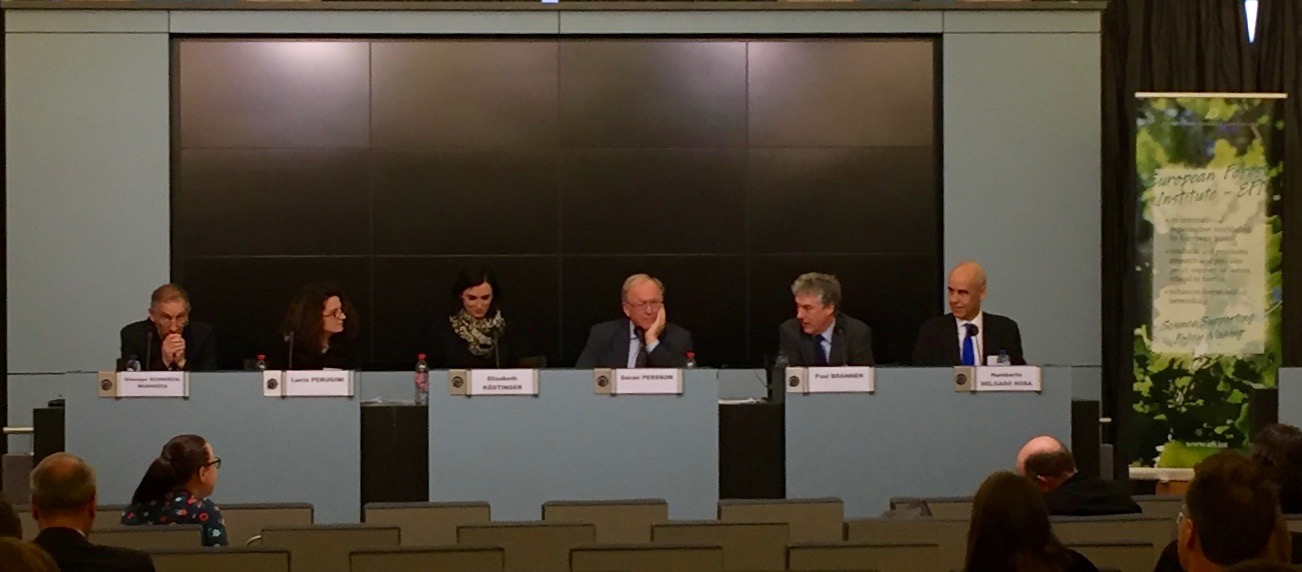Forests can help meeting the EU climate policy targets through bio-economy
Forests and the forest sector can play an unprecedented role in meeting the EU climate policy targets and the objectives of Paris Agreement of December 2014 through bio-economy. It was one of the conclusions of a ThinkForest seminar held in Brussels on 15 March 2016.

Mr Kimmo Tiilikainen, Finnish Minister of Agriculture and the Environment, stated that forests and the bio-economy need to play a central role in meeting climate policy objectives. Finnish government is investing in bio-economy and considers it to be a key means to reach the Paris Agreement target of achieving a balance between emissions and removals by 2050.
A systemic change is needed to create a fossil-free society and at the same time secure economic growth. To achieve that, we need to develop new biomass-based products. We need new bio-chemicals, biomaterials and bio-textiles in addition to the use of timber as a construction material or other traditional wood-based products.
European forests and forest-based sector have a great potential to move towards the post-petroleum era and the transition to a low-carbon economy. Ms Marie Donnelly, director of the European Commission DG Energy, emphasized the role that bioenergy will play in post-2020 climate change policy. To successfully implement the Energy Union the EU needs advanced biofuels coming into the market. The latter requires new technologies and innovations and ensuring sustainable sourcing or renewables. Consequently she reconfirmed the Commission’s determination to get sustainability criteria for solid biomass.
Biology and forests will be the basis for this next industrial step, summarized Mr Göran Persson, the Chair of the seminar and President of ThinkForest. This is one of the most promising developments ahead of us – he concluded.
Published 18/03/2016
Mr. Piotr Borkowski
Executive Director
- piotr.borkowski@eustafor.eu
- +32 (0) 474 989 319

